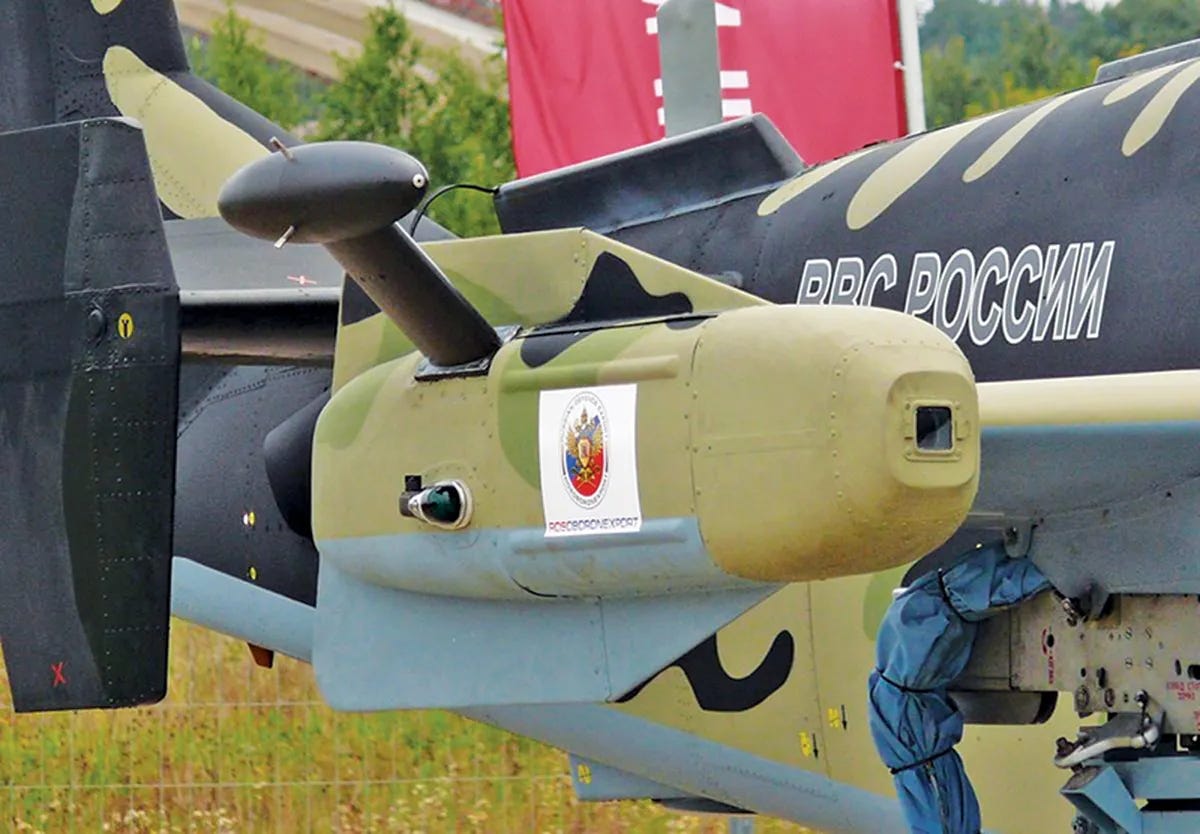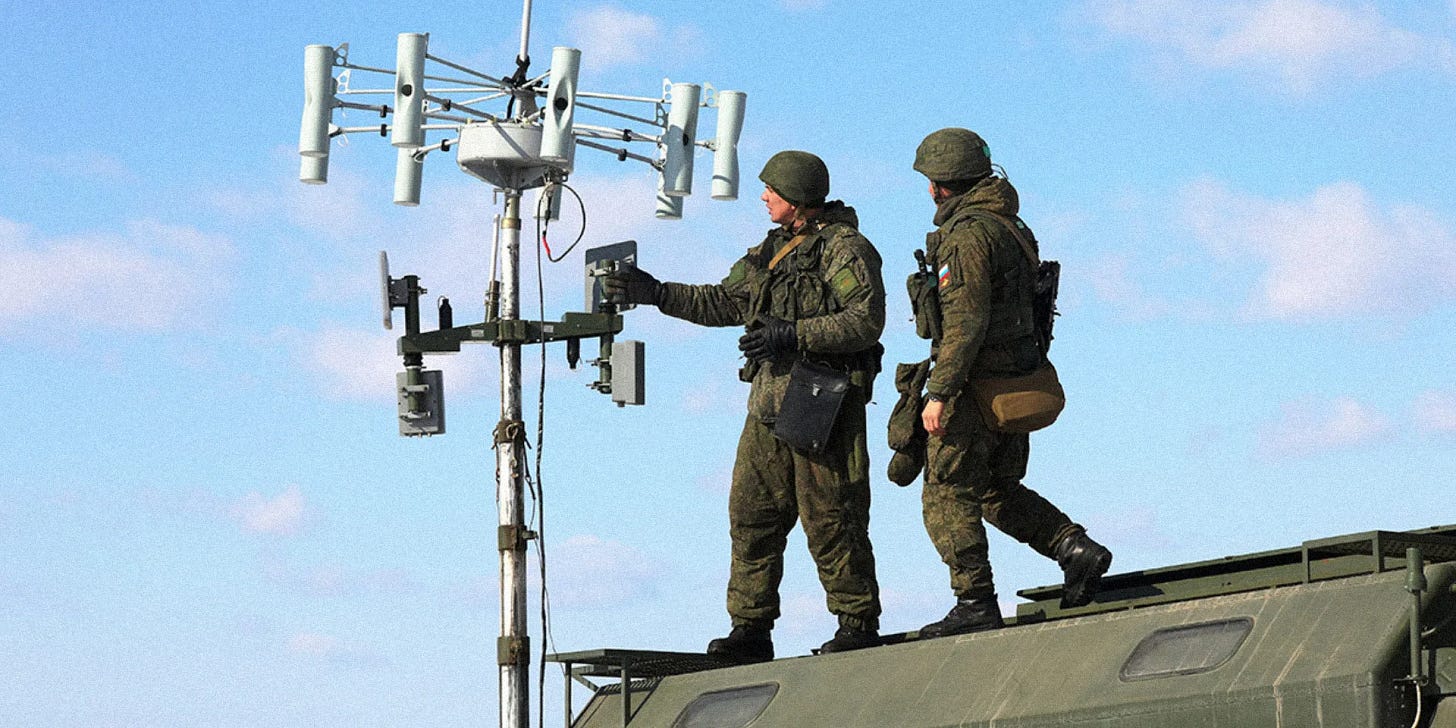IStories: The West has banned the sale of components for the production of weapons to Russia. But sanctioned Rostec successfully buys them from the West
I have translated this very important investigation from Istories into English.
"Important stories" releases an investigation of how Rostec is buying components for electronic warfare systems that destroy Ukrainian defense from the West, bypassing sanctions.
JAN 25 2023
AUTHORS: EDITORIAL STAFF , MARIA ZHOLOBOVA
The VMK office is registered in a brick three-story administrative building on one of the central streets of Saratov. It is surrounded by 100 Doors, Doorland, Empire Doors, and Doors Plus stores. The VMK itself has no sign, no website, no phone number, and only four employees are listed there.
At the same time, VMK is one of the largest suppliers of electronic components to Russia. Last year alone, it received $43 million worth of components from abroad, mainly products from American Analog Devices, Xilinx, and Texas Instruments.
VMK has only one client— Russian arms manufacturer, Rostec. More precisely, the Rostekhov structure, the Radio Electronic Technologies Concern (KRET), is responsible for developing radio electronics for the military, including electronic warfare systems (EW).
"Vitebsk", "Khibiny", "Krasukha" and others
Electronic warfare is used to suppress enemy communications, control, and reconnaissance systems - and, conversely, to protect friendly troops from all of the above. “A variety of electronic warfare systems are now successfully being tested in combat: they jam the enemy’s communication channels, and guidance systems, leaving them without eyes and ears. They also confirm the ability to effectively deal with drones, suppress control and data transmission channels between the operator and the drone, and satellite navigation, ” Rostec explains.
According to Russian military expert Pavel Luzin, Russia annually spends 30-40 billion rubles on the purchase of electronic warfare systems. KRET is the largest player in the electronic warfare market.
KRET has been sanctioned since 2014, and the companies it manages are gradually being sanctioned – there are about 70 of them in total. The Kaluga Research Radio Engineering Institute (KNIRTI) sanctioned in 2019, produces the Khibiny electronic countermeasures system, which protects Russian aircraft from air defense systems.
The sanctions deprive KRET of the opportunity to legally obtain NATO components, without which it is impossible to make the Russian " wonder weapon.” Experts from the Royal Defense Research Institute (RUSI) studied 27 types of Russian weapons found on the battlefield in Ukraine and found 450 types of foreign-made electronic components there. 317 of them were made by American companies.
"Important stories" found in the public domain several examples of such components in relation to KRET.
For example, at the end of 2021, the Stavropol company Signal (part of KRET) published on the Rostec procurement portal a list of components for the SAP-518SM jamming system (modernized Khibiny), which is installed on Su-30 aircraft: chips from American Analog Devices, Xilinx and Texas Instruments, Swiss ST Microelectronics, Bourns resistors - also from the USA, Japanese Murata capacitors, German Infineon diodes. Some of them are subject to US export restrictions (for example, here.)

Similar electronics are located inside the Vitebsk electronic warfare system, which is made by the Tatarstan Radiopribor (part of KRET). "Vitebsk" is used on Russian helicopters to protect them from Ukrainian MANPADS. "Vitebsk" operates on the chips of the Japanese Murata and the American Texas Instruments.
Documentation for certification tests of the Krasukha electronic warfare system is also available - it was published by the manufacturer of this complex, the Bryansk Electromechanical Plant (part of KRET). The Russian military, according to RUSI, used Krasukha, to jam the signals of Starlink satellites. The list includes chips from American Analog Devices, Texas Instruments, and Microchip Technology.
KRET cannot buy components directly from the enemy, so they set up a chain of companies that help with this. "Important Stories" found this chain by studying the financial and customs documents of the companies.
Chain: Level 1
The chain of intermediaries begins with the Mytishchi subsidiary of the Radiopriborsnab concern near Moscow. In fact, this is the procurement department of electronic components for KRET enterprises. In 2021, Radiopriborsnab's revenue from the sale of electronic components to KRET enterprises amounted to almost 10 billion rubles. The main buyers in 2022 are the above-mentioned KNIRTI, the Ekran Research Institute (the lead developer of Vitebsk), and the Ryazan Instrument Plant (avionics, radars, etc.).
Radiopriborsnab itself cannot directly access the market of foreign components - as a 100% subsidiary of the sanctioned KRET, it is also under sanctions. Therefore, in 2017, in the same Mytishchi, at the same address, another company with the same name, Radiopriborsnab, was registered, 49.9% owned by the original Radiopriborsnab, and 49.9% owned by another KRET structure. The director of this second Radiopriborsnab, Daria Khorkina (probably the lawyer of the original Radiopriborsnab owns the remaining 0.2%. Formally, this removes the second "Radiopriborsnab" from under sanctions - after all, none of the structures of KRET has a controlling stake in it. In 2022, the original Radiopriborsnab purchased almost 17 billion rubles worth of components from its semi-daughter Radiopriborsnab.

Chain: level 2
All the necessary parts cannot be obtained this because a number of electronic components are subject to export control, and American regulators would not allow a company of the Russian defense complex to be indicated as the final buyer. Therefore, the suppliers of the second "Radiopriborsnab" are companies that are formally not associated with KRET at all.
The largest of them is Testkomplekt, which supplied components worth 8.2 billion rubles to Radiopriborsnab in 2022. Some of these components were imported because, according to customs data, Testkomplekt imported $33 million worth of components into Russia in 2022 (including those from American Analog Devices, Xilinx, and Texas Instruments). At the same time, Radiopriborsnab is the main, but not the only client of Testkomplekt: the latter supplied, for example, the JSC Concern Okeanpribor, which makes hydroacoustics for the navy, and the Yantar Baltic shipbuilding plant, which builds warships.
"Testkomplekt,” is part of the KRET network, according to people with knowledge. In 2016, it was established by a certain Guzel Agzamova. She is almost certainly the wife of one of KRET's managers, Spartak Antikovich Khaidarov.
WHY DO WE THINK THAT GUZEL IS THE WIFE OF SPARTAK
Until 2021, Testkomplekt was registered at the same address as the main Radiopriborsnab. And now it is located in a neighboring office with a daughter of KRET - the Promtekhnosert company; Spartak Khaydarov - Deputy General Director of Promtechnocert.
Another almost 4 billion rubles of components for Radiopriborsnab were supplied by two companies, also with the same name - VMK, one from Saratov, the other from Samara.
In the registry, they are written to different people, but the Samara VMK has the same phone number as the former company of the owner of the Saratov VMK, Dmitry Rebus.

Chain: Level 3
The three Russian firms that supplied almost 12 billion worth of components to Radiopriborsnab in 2022, of course, did not receive them from manufacturers.
Both VMKs have two suppliers, Turkish and Chinese.
Hong Kong Tordan Industry Limited belongs to the director and owner of the Saratov VMK Dmitry Rebus. He registered the company in the Solo shopping center, which provides low-cost rental services for tiny shops (cosmetics, needlework, etc). At the same time, Tordan Industry is not at all tiny; last year it imported almost $30 million worth of components into Russia.
Turkish Turkik Union And Dijital Teknoloji, which delivered $24 million worth of components in 2022, is run by Mustafa Cankat Aitek. Turkik Union claims on its website that it manufactures and sells computers and other electronics. At the same time, random photos from the Internet are published in the "Products" section, and random texts are used as descriptions, in particular, a quote from Goethe's "The Sorrows of Young Werther.”
Cankat Aytek quite often flashes in the Turkish press. He has several businesses in the country, including Turkik Union, which supplies Rostec. In the Turkish business register, Aytek is listed as the "chairman of the board" of the company, and his older brother Niel Orkun Aytek, as the deputy. Orkun Aitek passed away last December; local media recalled how bravely he fought the putschists during the coup attempt on July 15, 2016. The Aiteks are the nephews of Atilla Aitek, the former intelligence chief of the Turkish Main Security Directorate.
Testkomplekt has many Chinese suppliers and dozens of companies from both Hong Kong and mainland China. The largest of these is the Hong Kong-based United Electronics Group Company Limited, owned by a man named Yury Zhukov.
Nobody heard anything
The people and companies that are mentioned in this article and whose contacts "Important Stories" managed to find did not want to discuss their business. The founder of Testkomplekt, Guzel Agzamova, and Daria Khorkina from Radiopriborsnab refused to talk. The current owner and CEO of Testkomplekt, Ruslan Bulatov, said that he had nothing to do with the supply, and hung up. Rostec, Promtekhnocert, and Dmitry Rebus did not answer the questions sent to them. It was not possible to contact Spartak Khaidarov.
Turkik Union said they were not connected in any way with any of the companies mentioned by Important Stories.
Western manufacturers, Analog Devices and Texas Instruments, as usual, said that they had no business with Russia after the start of the war.






I’m sickened but not surprised. Excellent reporting Olga as always, we need you.
Big money, realpolitic, old grumpy men... And the victims of Ukrainian civilians on the other side. I've already made my wire to the ZSU (bank account at Ukrainian National Bank) this month.